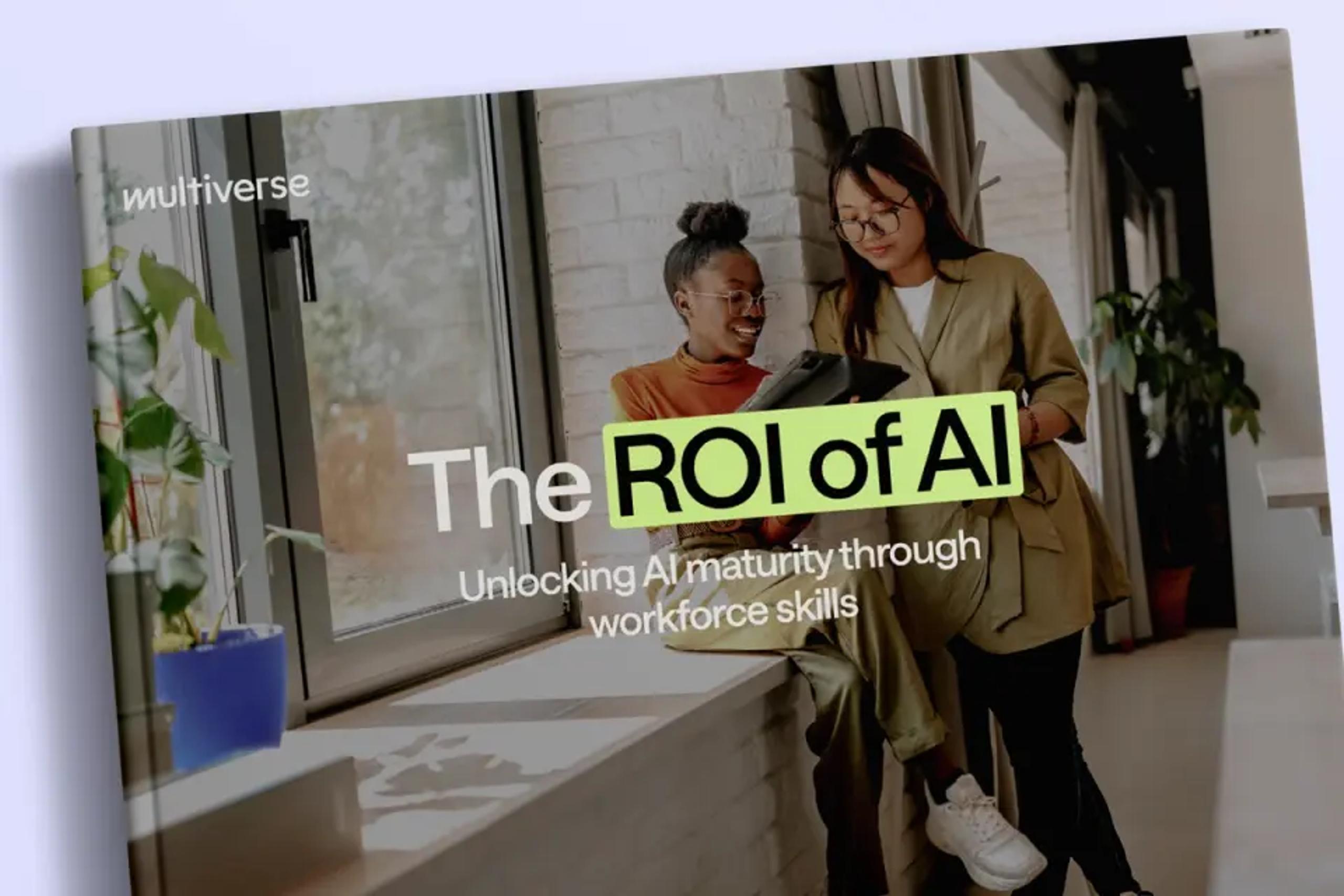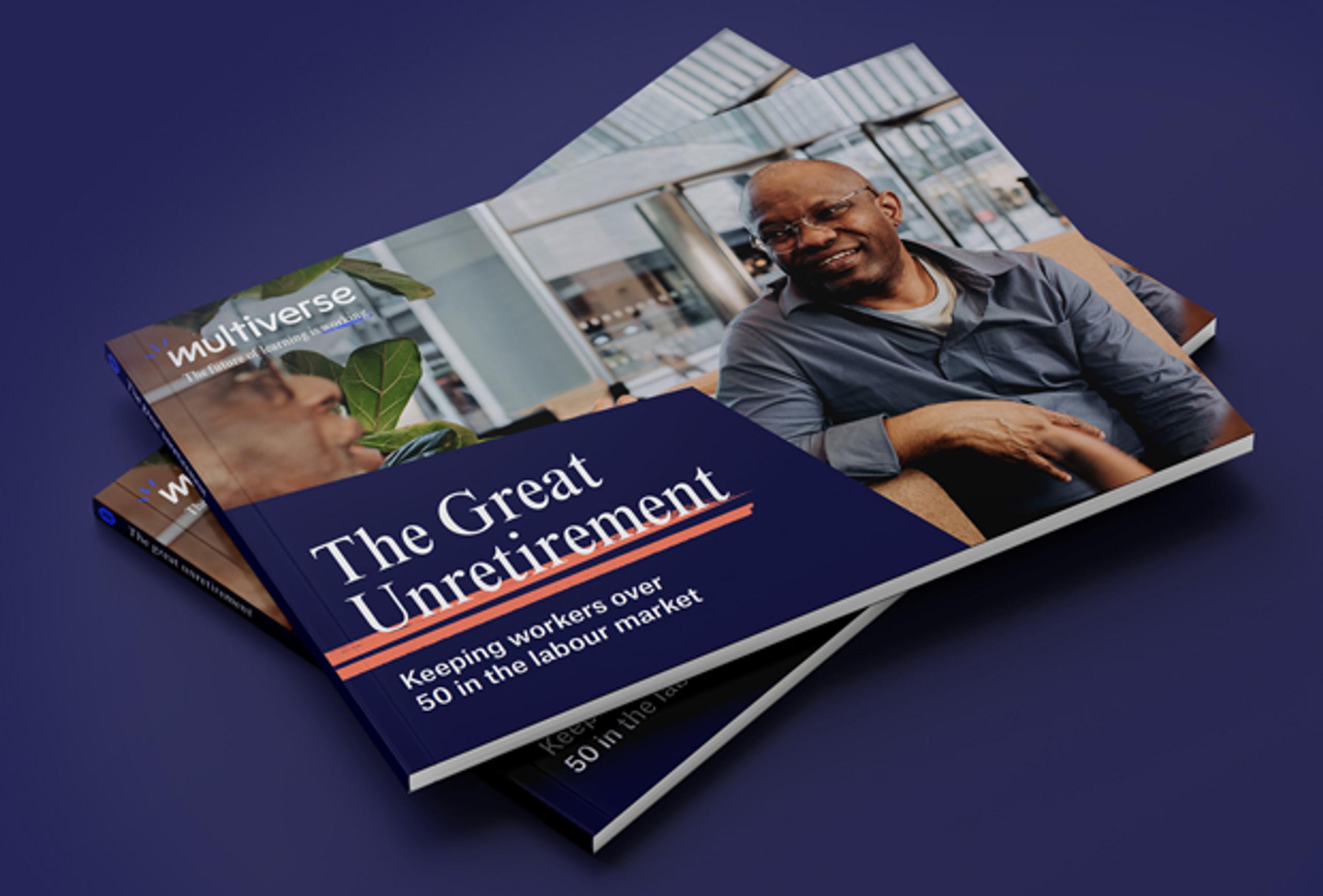New research from Multiverse released today has found that millions of workers over the age of 50 are leaving the workforce early, and the trend is set to continue.
Nearly two-thirds (63%) have considered early retirement, while four in ten (39%) think that it is likely that they will retire early.
While many in their 50s and 60s are retiring early in a strong financial position, some to spend time with family, others are forced to leave their jobs early because of health concerns or skills deficits.
For societies, this has severe consequences. It means less economic activity as well as additional productivity challenges. It can mean a brain drain of talent from companies, and a lower tax take to spend on public services.
It’s also bad for businesses. Workers over the age of 50 are also an incredible asset to the businesses they work for and for the wider economy. From decades of experience to institutional company knowledge, there are significant benefits to retaining these employees in the workforce.
And there’s an individual impact. While retiring early is the right decision for many people, many others are leaving jobs they enjoy and careers they depend on early because of circumstances out of their control.
Supporting workers over 50
There is a question for policymakers and business leaders at the heart of this debate: can anything be done to better support this age group in order to keep more employees in the labor market for longer, and persuade some of those who have already left, to come back?
Our research suggests one solution: skills, training and development are some of the most effective ways to incentivize the over 50s to stay in the workforce.
This is particularly acute when it comes to tackling the impact of digital transformation. Too many are anxious about how the pace of change is impacting their work. A quarter (27%) find new technology difficult to get used to, while a third of early retirees (33%) say the tech skills requirements of the modern workplace have made it more difficult for them to return to work.
Significant numbers feel they are deprioritized compared to their younger colleagues when it comes to training and development. Half of those over 50 in work say they haven’t taken part in any kind of training course in at least a year.
Embedding upskilling and reskilling throughout a career
This needs to change. Upskilling and reskilling must be embedded in companies’ strategies year in and year out. While many ways to incentivize employees to stay in work, like major increases to the size of a pension pot or tackling long-term health conditions, are out of reach for businesses and for most governments, tackling skills gaps is not.
Transitioning the great retirement to the great unretirement is no easy feat. But the first way to tackle the challenge is by diagnosing it and understanding which interventions can have the greatest impact.
A laser focus on skills
Our analysis shows that there are 450,000 people in the UK, and just over 2.4 million in the US, who are thinking about leaving the labor market early because they can’t keep up with the skills demanded of the modern workplace. When the numbers are that great, not acting simply isn’t an option.
Whether it’s training, development or better-preparing workers for the changing skills requirements, it’s essential that businesses as well as governments understand the mechanisms to flip the great retirement to the great unretirement. This could be through much-touted returnships for people who have left the workforce, but now looking for opportunities to come back.
The right action here won’t just close business skills gaps and increase economic growth, it will restore choice to millions of workers late in their careers, giving them greater agency on the right time to retire.



